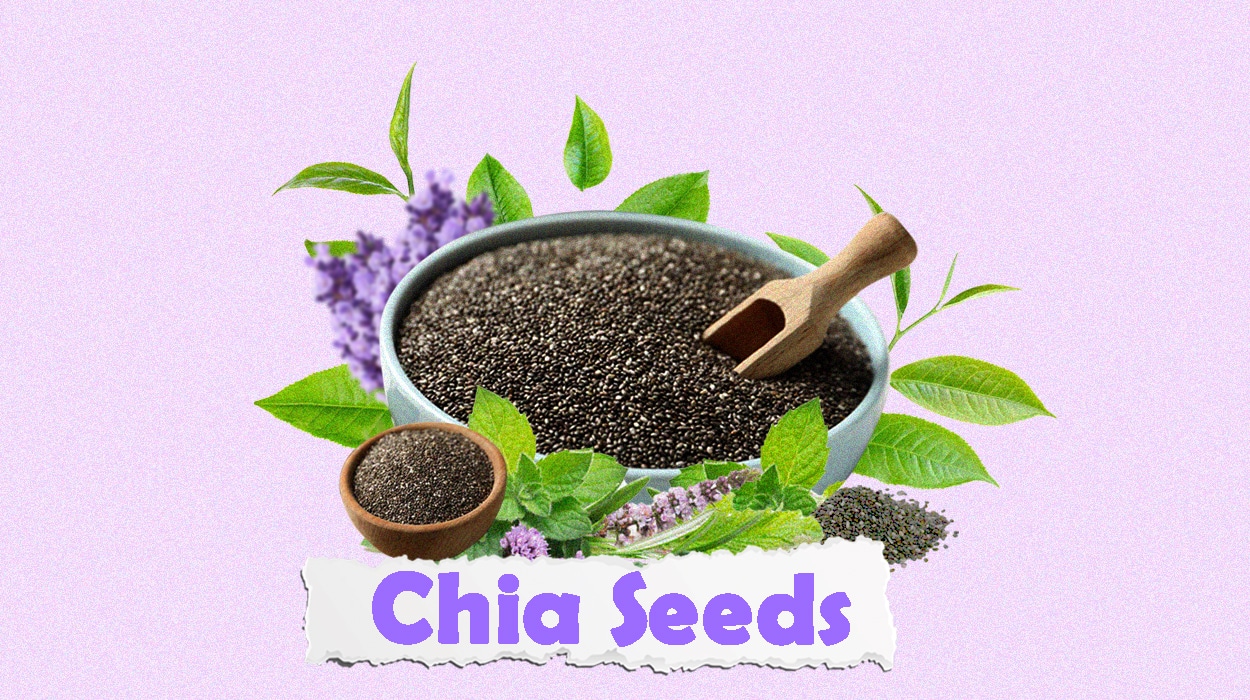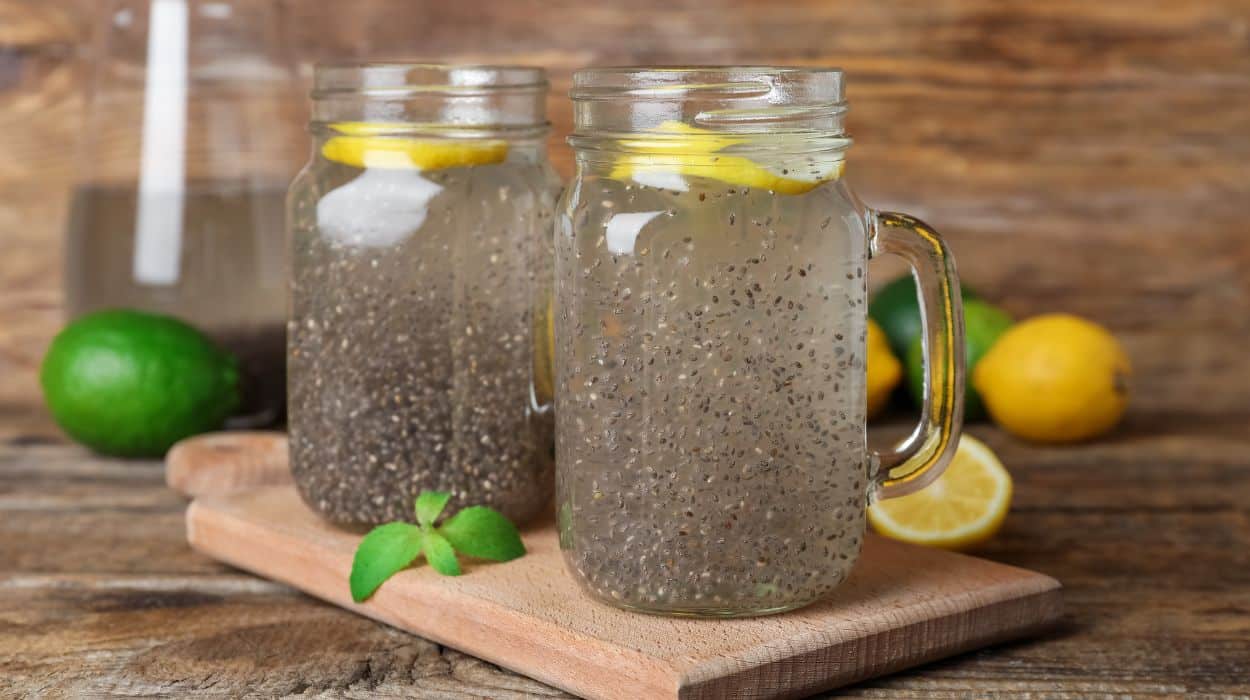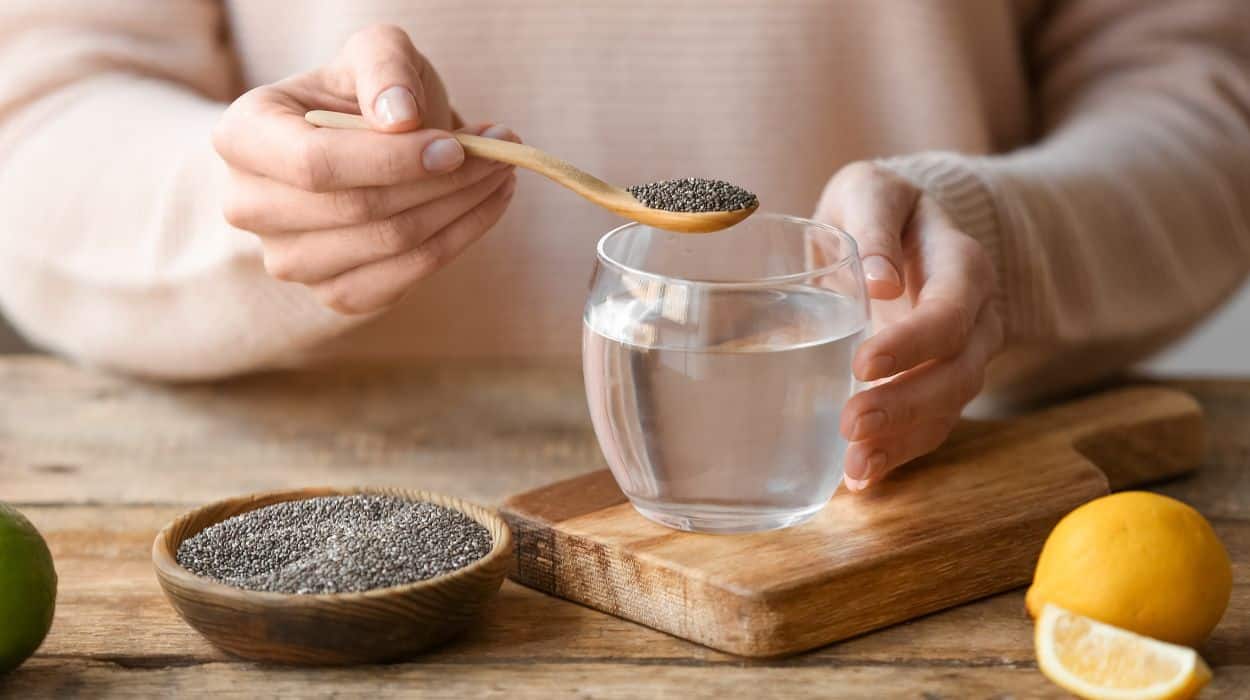8 Health Benefits Of Chia Seeds That May Surprise You 2024

Chia seeds are tiny, black, brown, or white seeds, originally grown in Mexico. They come from a flowering plant in the mint family and are considered a superfood. Though originally from Mexico, they are grown in many regions in South America. Chia seeds are small, dry seeds that expand and become soft and gelatinous when soaked in liquid. They have a mild, almost unnoticeable taste, making them easy to add to many dishes, smoothies, baked goods, and cereals, or eaten on their own. Chia seeds have adequate amounts of fiber, protein, and omega-3 fats, making them a healthful addition to almost any diet, especially for vegans and vegetarians who may need additional sources of protein and healthy fats. So, What are the health benefits of Chia Seeds?
Top 8 Surprising Benefits of Chia Seeds
- Improve Bone Health
- Help with Weight Management
- Reduce Inflammation
- Regulate Blood Sugar
- Improve Heart Health
- Improve Gut Health
- Reduce Allergies
- Support Skin Health
Chia Seed Benefits
Improve Bone Health
Chia seeds play a major role in growing and maintaining bone health cause they contain calcium, while the magnesium in chia seeds has a profound effect on the parathyroid gland. This gland is responsible for the “mineralization of new bones”. Most people think of dairy when they want more calcium, but in ounces, chia seeds contain more calcium than dairy. Chia seeds also have manganese, which aids in collagen production – collagen is necessary not only for skin but for bones as well.
Help With Weight Management

Chia seeds have soluble fiber (also found in oats and other grains), which is known to help increase satiety. When chia seeds are soaked in water, juice, or milk, they expand, causing a feeling of fullness, leading to less overeating or calorie intake, and fewer cravings. Additionally, the fiber in the seeds helps to promote bowel regularity, a necessary aspect of detox and weight management. The protein in the seeds also helps to build muscle and reduce fat, while increasing energy which the body can use to promote weight loss efforts.
Reduce Inflammation
Chia seeds have an ideal ratio of omega-3 to omega-6 fatty acids, which simply put, means it has more anti-inflammatory fats than inflammatory ones. Omega-3s are notoriously effective at reducing inflammation, whether that inflammation shows up on the skin in the form of acne, internal inflammation such as ulcers, or inflammation of the brain or joints (arthritis). When combined with their high amounts of protein and fiber, chia seeds can help curb and even reverse most forms of inflammation.
Regulate Blood Sugar
Blood sugar stabilization is essential for overall health, though diabetes is the most talked about need for it. Blood sugar can become unstable when we are stressed, lack sleep, or eat too many carbohydrates and sugar without any protein, fat, or fiber to balance them out. Chia seeds have a dense fiber profile, making them an excellent tool for blood sugar regulation. Pairing chia seeds with other foods can help create a more balanced meal or snack, aiding in the stabilization of blood sugar, fewer glucose spikes, and by extension, better weight management, less anxiety, less mood swings, better hormone balance, and overall better health.
Improve Heart Health
The fiber in chia seeds is excellent for heart health. Consuming chia seeds regularly can help reduce LDL cholesterol levels in the blood, which then reduces the risk of heart disease. The omega-3s in the seeds are also a factor in promoting a healthy heart. Though more research is needed, there’s some evidence that shows that in humans, supplementing chia seeds in the diet of people with hypertension causes a reduction in high blood pressure (a risk factor for heart attacks).
Improve Gut Health
Chia seeds have soluble fiber, which helps to feed the beneficial bacteria in the gut, known as our gut microbiome. Without a thriving microbiome, our gut health, immunity, and brain function are compromised. The fiber also encourages bowel regularity (relieves constipation), and when chia seeds become gelatinous (after being mixed with liquid) they are easily tolerated by those with sensitive stomachs. Some evidence also suggests that chia seeds can improve the tissue inside the GI tract. The villi (microscopic hairs) in our intestines absorb nutrients, and chia seeds may increase the surface area (including length and width) of the villa, which increases the number of nutrients that can be absorbed.
Reduce Allergies
Allergies are another form of inflammation, and since chia seeds are anti-inflammatory, it’s no wonder they are great at reducing allergy symptoms. The omega-3s in the chia seeds in particular have anti-inflammatory effects. When omega-3s are consumed in adequate amounts on an ongoing basis, it can improve seasonal allergy symptoms which can lead to better breathing, fewer sinus problems, and less hay fever.
Support Skin Health
Because chia seeds have a lot of antioxidants, it makes them an ideal food to support healthy skin. Antioxidants fight the damage caused by free radicals and help to prevent oxidative stress. At the same time, these antioxidants encourage the growth of new tissue, all of which help the skin regenerate itself and look younger. Therefore, eating chia seeds regularly can help prevent and reverse skin damage.
Chia Seeds Vs. Flax Seeds Vs. Basil Seeds
Chia seeds are tiny, oval-shaped seeds that grow on a chia plant, whereas flax seeds, while small, are a little larger and thicker. It comes in black, white, and brown colors, and flax seeds tend to be different shades of brown. Chia seeds tend to be almost tasteless (hardly any flavor) whereas flax seeds tend to have a more “nutty” taste. Both are excellent sources of fiber, omega-3s, vitamins, and protein. Gram for gram, they have similar amounts of nutrients, vitamins, and minerals, and can aid in similar health benefits.
Basil seeds also have a similar look and nutritional makeup as chia seeds but have slight differences. These seeds come from a basil plant while chia seeds come from a chia plant.
Basil seeds are usually all black and slightly larger than chia seeds. While chia seeds can be eaten raw, basil seeds must be soaked first. Otherwise, these two seeds are often used interchangeably in meal preparations.
Nutritional Benefits In Chia Seeds
Chia seeds are packed with vitamins, minerals, soluble fiber, and antioxidants.[1] Some of their nutrients include calcium, manganese, magnesium, selenium, B vitamins, copper, iron, zinc, potassium, and phosphorus. In one ounce of chia seeds, there are almost five grams of protein, nine grams of fat, ten grams of fiber, and 12 grams of carbohydrates. In that one ounce, there are 138 calories and no sugar.
Should We Have Chia Seeds Daily?

Chia seeds are generally safe and well-tolerated, however, some people may want to avoid them. Certain severe GI conditions such as Chron’s or Ulcerative Colitis (forms of inflammatory bowel disease) can make a person prone to inflamed intestinal linings, and seeds may aggravate them, inducing a flare-up. This is not a universal reaction, however. If you suffer from GI conditions and want to incorporate chia seeds into your diet, it’s best to discuss it with your gastroenterologist.
For those with chia seed allergies, whole chia seeds should be avoided. Additionally, if you have a compromised ability to swallow and you’re concerned about choking dry chia seeds should be avoided – they can get stuck in the throat. Chia seeds may also interact with blood pressure medication. Consult your doctor if this applies to you.
For all other individuals, chia seeds are safe and healthy to have daily. They should be stored in a cool, dark, and dry place. Cabinets are fine, but you can also store them in the fridge if room temperature is too warm. Chia seeds can be eaten in many ways: added to smoothies, soaked in milk or juice to make chia seed pudding, ground and used as an egg replacement for baking, added to batters for pancakes and other baked goods, mixed into oatmeal, and so forth.
Conclusion
Chia seeds are tiny seeds that, when soaked in liquid, become gelatinous and soft, making them ideal to make pudding with. They can also be added to smoothies or sprinkled on top of oatmeal. Chia seeds pack a ton of nutrients into their tiny shape, giving them healing powers for blood pressure, gut health, skin, inflammation, and bones. They share similar health benefits and appearances to flax and basil seeds, but they are not exactly the same – of the three, chia seeds are the smallest and have the least flavor, which makes them almost unnoticeable in taste. Chia seeds are an excellent source of the three main macronutrients – fat, protein, and carbohydrates, as well as soluble fiber, vitamins, and minerals.
Frequently Asked Questions
Yes, chia seeds can be eaten raw, however, the dry seeds could pose a choking hazard for those at risk. To be safe, it’s good to soak them in milk, juice, or water to make them soft.
They all provide similar nutritional value and look mostly alike, however, they all come from different plants and have slightly different shapes, colors, and tastes.
Generally speaking, yes. Chia seeds can be great for digestive health because they are anti-inflammatory and easy to digest, the fiber helps the beneficial gut bacteria thrive. However, this may not be the case for certain, severe GI conditions such as inflammatory bowel disease – people with this condition may need to avoid chia seeds.
+ 1 sources
MIDSS adheres to strict procurement guidelines and relies on peer-reviewed studies, academic research institutes, and medical associations. We work mainly with peer-reviewed studies to ensure the accuracy of the information. We avoid the use of tertiary references. You can read about how we ensure the accuracy and timeliness of our content in our editorial process.
- Ullah, R., Nadeem, M., Khalique, A., Imran, M., Mehmood, S., Javid, A. and Hussain, J. (2015). Nutritional and therapeutic perspectives of Chia (Salvia hispanica L.): a review. Journal of Food Science and Technology, [online] 53(4), pp.1750–1758. doi:https://doi.org/10.1007/s13197-015-1967-0.





